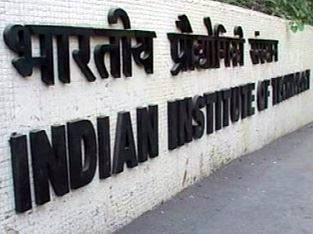 The mere mention of the Indian Institutes of Technology conjures up images of academic rigor and excellence. Alumni are fond of mentioning how Indian students who cannot get into the IIT of their choice sometimes end up at the Ivies in the United States — their safety schools.
The mere mention of the Indian Institutes of Technology conjures up images of academic rigor and excellence. Alumni are fond of mentioning how Indian students who cannot get into the IIT of their choice sometimes end up at the Ivies in the United States — their safety schools.
But the IITs also face a major problem: lack of new faculty members.“We have very few students in India going for their Ph.Ds. And those that go for a doctoral degree tend to do it outside India, and prefer to stay back and work there,” said Manindra Agrawal, dean of resource planning and generation and a computer science professor at IIT Kanpur.
At IIT Kanpur, in north India, where about 350 professors are employed, about one-third of faculty positions are vacant.
Now, officials at IIT Kanpur are planning to open an office in either Washington or New York City by the end of the year to try to recruit new faculty members from the United States. Their target: the droves of IITians and students from other top engineering schools in India who end up pursuing Ph.D.s or postdocs at American universities. “This office will help us coordinate our faculty hiring much better,” Agrawal said. More than half of IIT Kanpur’s faculty members already have graduate or doctoral degrees from U.S. institutions, he said. In the past, the process has worked more informally — department heads would seek out promising postdoctoral candidates.
The proposed move by IIT Kanpur, which its board will discuss soon, comes at a time when emerging economies such as China are getting more aggressive in trying to lure talent back home. A report released this week by the Partnership For a New American Economy, a bipartisan group of mayors and business leaders that advocates for immigration reform, pointed out that China offers bonuses of about $150,000 to professors and researchers in the sciences who are willing to go back and teach in the country. Those with less experience can expect a bonus of $80,000. Germany, too, has been wooing its postdoctoral students in the United States, with academic leaders and government officials soliciting ideas from them.
The IIT’s plan seems puny in comparison. Agrawal admits that his institute will not be able to match dollar salaries, because salaries at the IITs are decided by the Indian government. And because of differences in the standard of living, these salaries tend to be much lower than what a faculty member might earn at an American institution “But we plan to augment the salary offered to new hires by about 50 percent through private funding and alumni donations,” he said. Fund-raising will be another goal of the new U.S. office, he said.
The need is pressing, Agrawal said. The university can’t offer as many courses it would like, and has been forced to cut back on some research projects.
Hiring established faculty members from American universities will be difficult, Agrawal said. “We are not ruling that option out, but right now we will concentrate on hiring young faculty,” he said. “We have a lot of a research funding from the government; we have an excellent environment.”
The proposed American office will employ two or three people. “We will see how it goes — we are going into uncharted territory here. And then maybe we will increase the size of the office,” Agrawal said. He admitted that luring world-class researchers would take very high salaries. “I certainly hope that we will be able to do at some point,” he said.
Paula Stephan, a professor of economics at Georgia State University, who recently co-authored a study by the National Bureau of Economic Research on migration patterns of scientists, said that the effort by IIT Kanpur seemed to be a “good news-bad news” situation. Her research showed that expatriate Indian scientists do return to their home country and the reputation of the institution plays a major factor in their decision. “IIT certainly has this to offer. Another piece of good news is that the U.S. is the place to look for Indians currently working outside of country,” she said.
But the bad news, she said, is that many Indian researchers living abroad are unlikely to return, “at least anytime in the near future, although some indicate that the probability depends upon job opportunities,” she said.
Philip G. Altbach, a professor of higher education at Boston College and an Inside Higher Ed blogger, wondered if IIT Kanpur’s plan would go beyond attracting more than a small number of idealists. “It is great if a successful and bright Indian Ph.D. can go back home, but when Indians go back, they quickly get burned out, caught up in the realities of working in India,” said Altbach, who has previously lived in the country.
Expats who have returned to India often complain about a stifling bureaucracy, he said, and the IITs are publicly funded. “One idea might be to give joint appointments to well-known scientists or researchers, or do some distance teaching,” he said. “That way, they do not have to give up their jobs here.”
Kaustuv Basu
24 May 2012



Call for Indian Expats
Posted on May 25, 2012